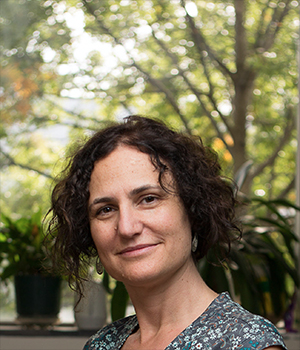
Gigliola Staffilani
(she/her)
Mathematics
Convening communities
Offering mentorship and advocacy to ensure her students have a smooth and enjoyable graduate experience matters deeply to Professor Gigliola Staffilani.
Staffilani is the Abby Rockefeller Mauze Professor of Mathematics at MIT. Staffilani has previously held positions at Princeton, Stanford, and Brown, with tenure at the latter two. Staffilani is a mathematical analyst; her research focuses on dispersive nonlinear partial differential equations. A member of the American Academy of Arts and Sciences, Staffilani is also the recipient of numerous awards, including a Guggenheim fellowship and a Simmons Fellowship as well as teaching and advising awards from MIT and Stanford.
A caring equilibrium
When reflecting on her growth as a mentor, Staffilani notes the distinction between being a “mentor/advisor/sponsor” and a “therapist/parent/friend.” Ensuring she fell into the former category was initially challenging. Through years of experience and deliberation, she has become skilled at achieving this balance of compassion and support with clear boundaries.
One student nominator recalls suffering from self-doubt as well as unresolved friction with their first graduate advisor. The student approached Staffilani, who took them on as a mentee partway through graduate school. In a nomination letter, the student describes Staffilani’s “compassion and empathy” as well as the “countless times” she reassured the student about their competence. Believing in students and their capabilities is a Mentoring Guidepost identified by the Committed to Caring (C2C) program.
Mental health is a priority for Staffilani. She notes that mathematics research can be lonely and frustrating at times. Accordingly, Staffilani encourages her students to connect via reading groups and dinners, and she has obtained funding to support these gatherings.
Encouraging diverse pathways
Many students fear faculty will think less of them should they choose not to continue in academia. Not so for Staffilani’s advisees. Staffilani makes clear that choosing to remain in academia in pure math means opting for a very specific lifestyle, requiring enjoying “spending endless hours on a problem that is hard to solve.” She offers students insight on what academic and non-academic pathways might look like and is dedicated to helping students achieve their dreams, wherever they may lie. Students express gratitude that Staffilani values multiple career pathways.
Indeed, Staffilani organizes monthly Women in Mathematics lunches where she brings in women who use math in their careers, some from outside academia. Staffilani also chairs a committee in the department focused on community building and inclusivity.
Staffilani highlights the emergence of mentorship as a priority over her time in academia. She describes her advisor as “ahead of his time” in recognizing the value of mentorship, helping to instill these patterns in her. Staffilani thinks a graduate student “deserves to be happy and not intellectually stressed out all the time.” Further, culturing aptitude for mentorship is important, as a graduate student “may be an advisor later on in life and needs to understand how to recognize talent in unpredictable places and nurture it.”
In the midst of the pandemic, Staffilani persists in crafting caring communities.
